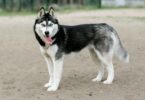You are in the right place to find out everything you need to know about raising a Bernese Mountain Dog puppy. You have come to the right place in case you are introducing one of these gentle giants in your family. This breed hails out of Switzerland and has a history of being a good farm dog but nowadays they are wonderful pets. Their relaxed nature and intelligence is the best option to a family with children or anyone who wants a faithful friend.
Being the first time dog owner or the experienced pet parent, it is important to understand the needs of your Bernese Mountain Dog. Their furry coats and their amiable nature are some of the features of these dogs that need to be taken care of, including grooming, health and training. It is important to socialize your puppy early and allow it to develop into a well-adjusted adult.
In this guide, we will discuss all you need to know about feeding, training, and caring about your Bernese Mountain Dog. You will get to know their size, temper, and their heritage, and useful tips on how to make sure that your puppy will thrive. We will also discuss some of the issues and give professional suggestions so that you can handle the problems of rearing this beautiful breed.
History and Legacy of the Bernese Mountain Dog
The Bernese Mountain Dog originated in Switzerland and has a long history as a general purpose farm dog. They were used on farms in Switzerland and are known to be strong and calm in character and were good at drafting and herding.
The breed was in decline in the late 1800s, and Professor Albert Heim took the lead in reviving the breed in 1907. This program saved the breed making it survive into the future.
The history of the breed in the United States started in 1926 when they were introduced by a Kansas farmer. The Bernese Mountain Dog was admitted to the AKC in 1937, and that is when they ceased to be working dogs and became family pets.
Their legacy still lives on today as a reminder of how adaptable and kind they were and thus are a favorite among most families.
Caring for Your Bernese Mountain Dog Puppy with the Best Dog Food
Health and grooming are important parts of caring about a puppy of the Bernese Mountain Dog. Vet visits on a regular basis are necessary to keep track of the growth and to detect possible problems in their early stages. During these visits, it should also be taken into consideration to conduct full health screening to cover some of the most common issues such as hip and elbow dysplasia.
Scheduling Vet Visits and Health Screenings
Veterinary care should start early. Puppies need a series of vaccinations and check-ups. Hip and elbow health screening is important as they develop. Such tests can detect possible problems in the early stages so that your puppy remains healthy.
Additional tests include cardiac evaluations and DNA profiles. They are essential to large breeds such as the Bernese Mountain Dog, and they can help avoid inherited diseases. Check-ups also assist in creating a good relationship between you and your vet.
Grooming, Coat Care, and Seasonal Shedding
Grooming is another key aspect of care. The thick double coat needs to be brushed regularly to avoid the matting. There are tools such as slicker brushes and undercoat rakes that you can use during shedding season when they are shedding a lot.
Brushing everyday during shedding season keeps them healthy and minimizes shedding. Don’t forget nail, ear, and dental care. Infections can be prevented by trimming nails once a month and examining ears once a week. Dental health is also taken into consideration, whereby a daily brushing is done, and vet cleaning when necessary.
Feeding, Training, and Lifestyle Essentials
Taking care of your Bernese Mountain Dog does not only mean health checks. These factors are important in their development through nutrition, training and environment. A moderate way will make them grow up as happy, well-adjusted pets.
Balanced Nutrition and Feeding Guidelines
Nutrition is vital for large breeds. A good quality dog food, high protein low filler is necessary. The key to avoiding obesity is portion control, and schedules of feeding are changed as they grow. Consult your vet to tailor meals to their needs.
Positive Reinforcement Training Techniques
Positive reinforcement is effective for training. Use treats and praise to encourage good behavior. They learn fast through consistency and clear commands because they develop trust and a strong bond.
Exercise Needs and Adapting to Your Home Environment
Daily exercise is necessary, including walks and playtime. Make the home a secure place where there are places to rest. Regular activity prevents health issues and keeps them stimulated. To get additional ideas on how to make the environment stimulating, see this guide.
Understanding Temperament, Socialization, and Behavioral Traits
Bernese Mountain Dogs are very sweet and loving and therefore very suitable as family pets. Their cool temper and smarts enable them to develop a close relationship with their owners, producing an affectionate and faithful pet.
Building Trust and Family Bonding
The foundation of trust between you and your Bernese Mountain Dog should be regular and empathetic treatment. Do something that encourages bonding like soft play and peaceful time together. This assists in laying a good foundation of a lifelong relationship.
Managing Prey Drive and Social Interactions
Bernese Mountain Dogs are relatively placid dogs, but have a strong prey drive. Expose them to different environments, individuals and animals at an early age to promote good relationships. This instinct can be controlled with training methods that promote calmness and responsiveness.
Knowing the nature of your dog and socializing him/her properly, you can establish a harmonious relationship with your Bernese Mountain Dog.
Final Insights for a Lifelong Companion
Bringing up a Bernese Mountain Dog is an experience that cannot be done lightly. As stipulated in this guide, they require regular health screening, proper diet and positive training methods to stay healthy.
In selecting a breeder, you should be keen on breeders that perform thorough health tests so that you are sure of getting a puppy with a heritage of long life and good health. It is essential to realize the dedication that goes into the care of a large breed because it will affect the quality of life of the dog as well as your capability of providing the needed environment.
Your house must be made to suit their size and coat requirements. Brushing every day especially during shedding will maintain their coat in good condition and reduce loose hairs. It is essential to provide a cozy place to rest and play because they are free to move and feel safe.
Your Bernese Mountain Dog will become a part of your family and the connection between you will strengthen with time. They are loving and hence a perfect pet to families and individuals. They are able to live a healthy and happy life with proper care, and normally last between 7 and 10 years, but there are cases of them living as long as 13 years.
Keep in mind that every family needs love and company that a Bernese Mountain Dog can bring. With the tips and suggestions contained in this guide, you are in a good position to have a well-adjusted and loving companion. Reach out to local specialists and breeders to get some personal guidance so that your experience with your new pet becomes nothing but wonderful.
FAQ
Are Bernese Mountain Dogs good family pets?
Yes, Bernese Mountain Dogs are excellent family pets. They are characterized by being gentle, calm and patient and therefore they are a good fit in families with kids. They are very strong and big thus require careful attention when they are around young children but otherwise they are very caring and protective of their families.
How often should I groom my Bernese Mountain Dog?
The Bernese Mountain Dogs have a dense coat which sheds massively especially during shedding season. Regular grooming is essential to prevent matting and tangling. Use a brush on your dog 2-3 times a week, and every day in shedding season. Bathing is to be administered at the interval of 2-3 months, or when necessary.
What are the health problems I need to know about in Bernese Mountain Dogs?
Bernese Mountain Dogs have some health problems which include hip dysplasia, elbow dysplasia, and some cancers. These conditions can be reduced by regular visits to the vet, proper feeding and ensuring that the animal has a healthy weight. Be sure to get a breeder who has health-screened his or her breeding stock.
Can Bernese Mountain Dogs live in apartments?
Bernese Mountain Dogs are huge dogs, which require space. They are able to get used to apartment life, but they need physical exercise and stimulation. A yard is perfect but in case you have an apartment, make sure you can give your dog a daily walk and play to keep him/her happy and healthy.










Leave a Comment